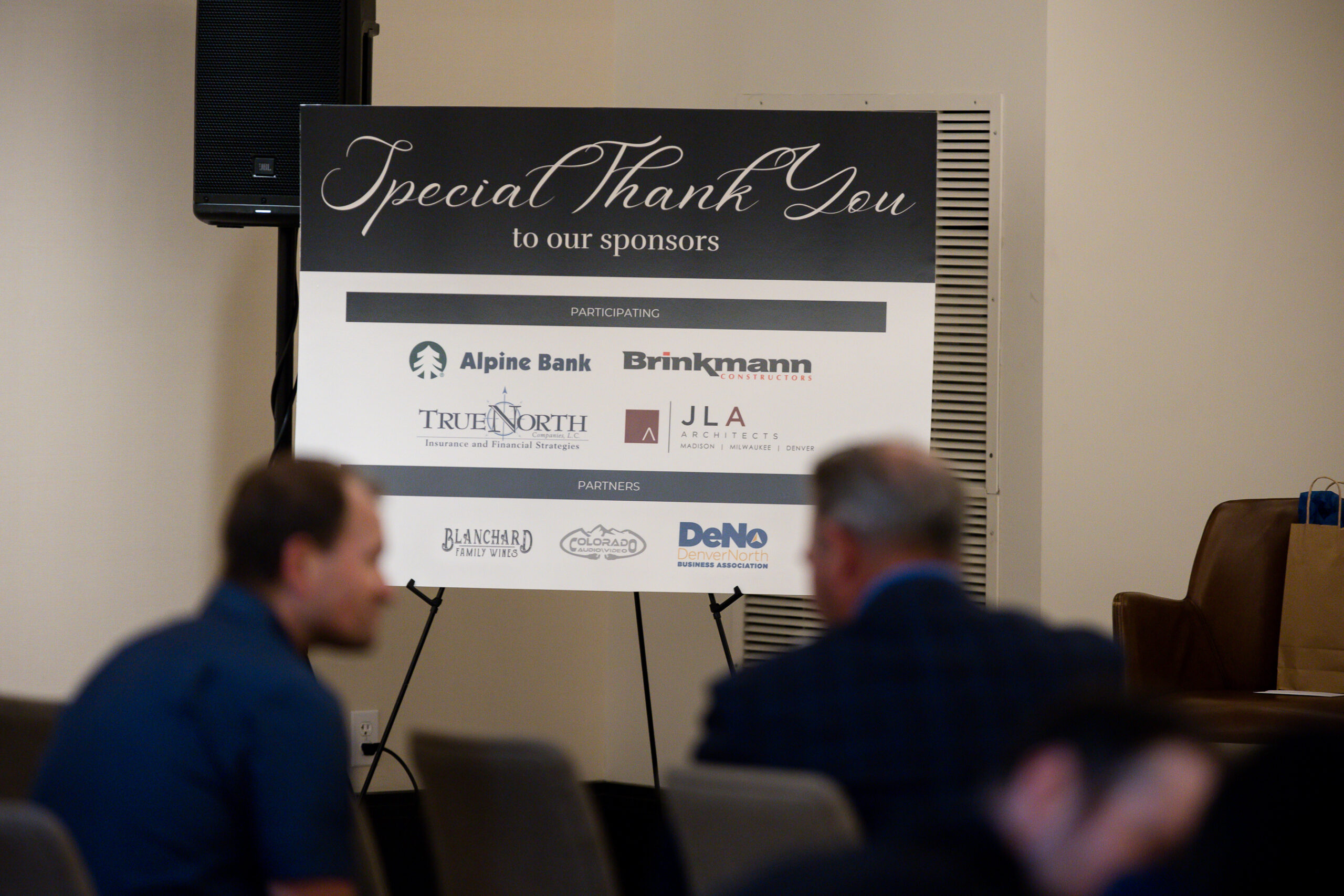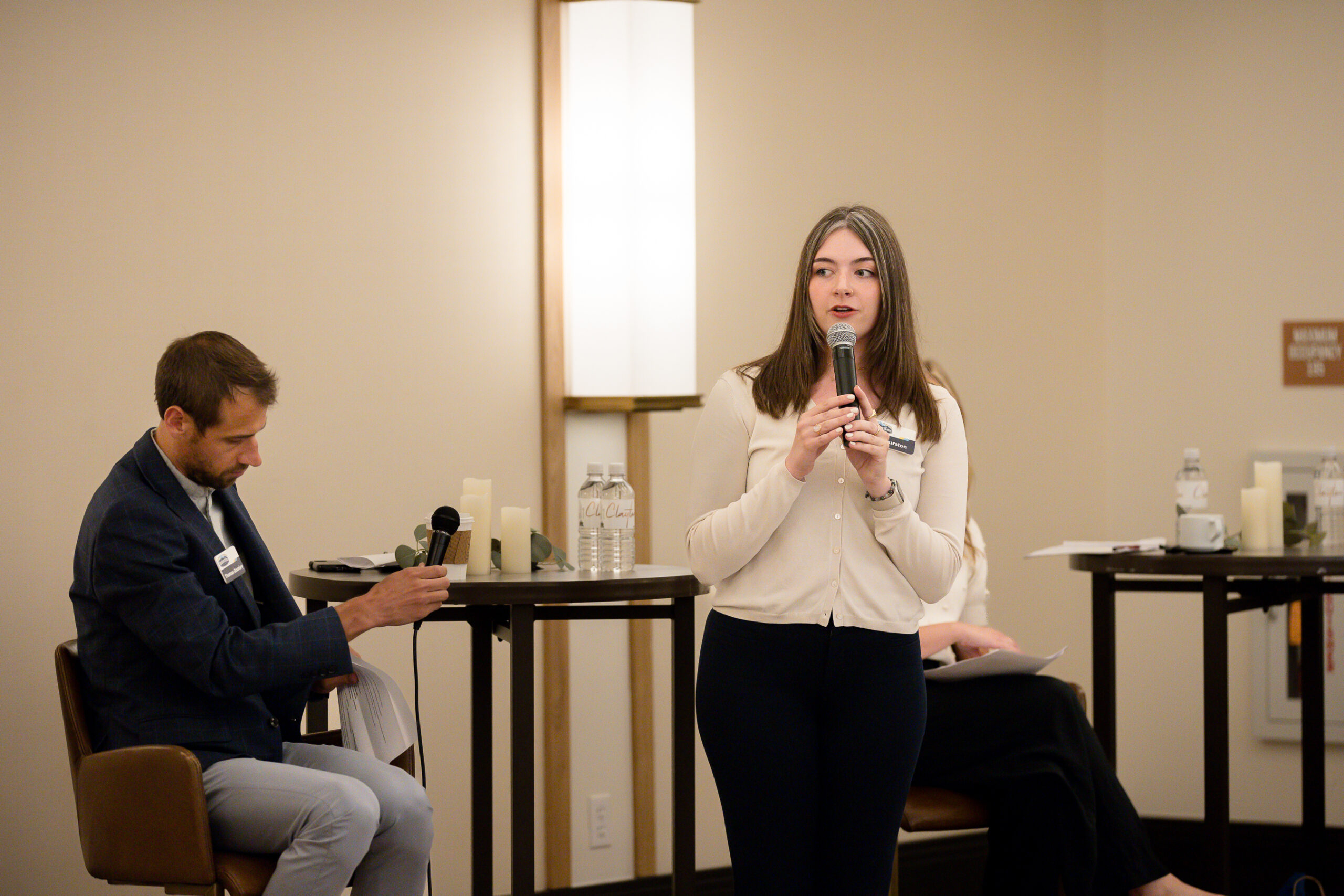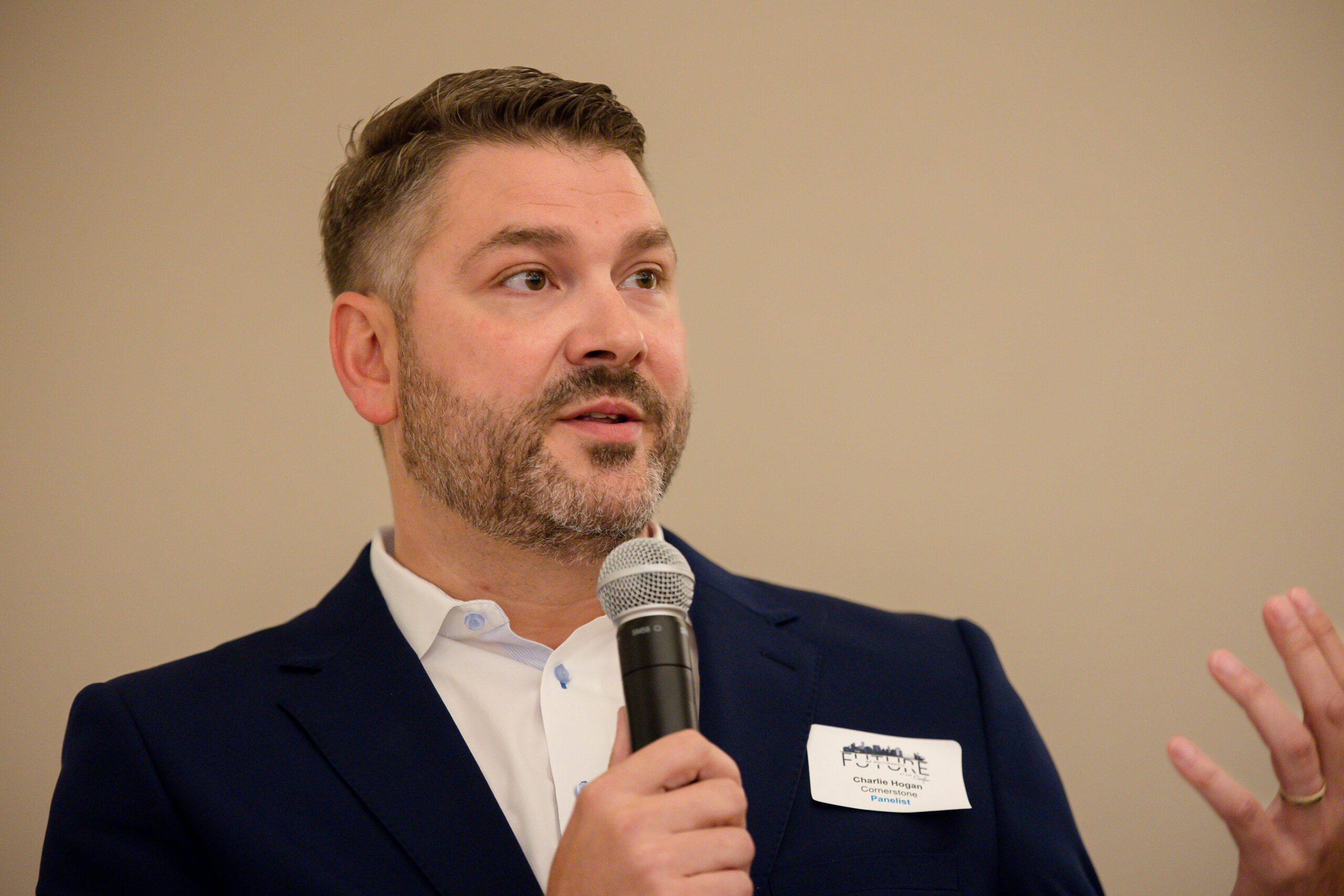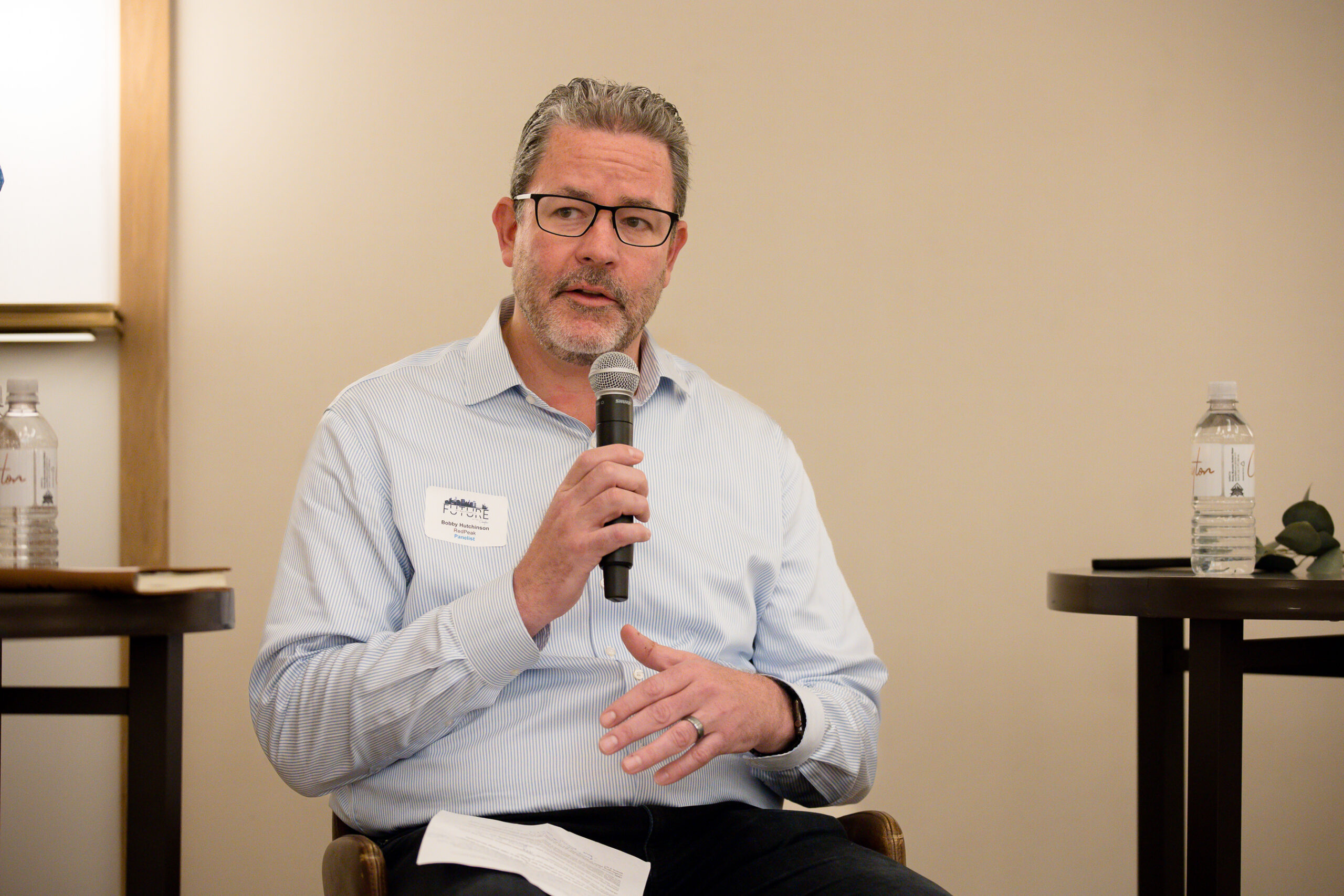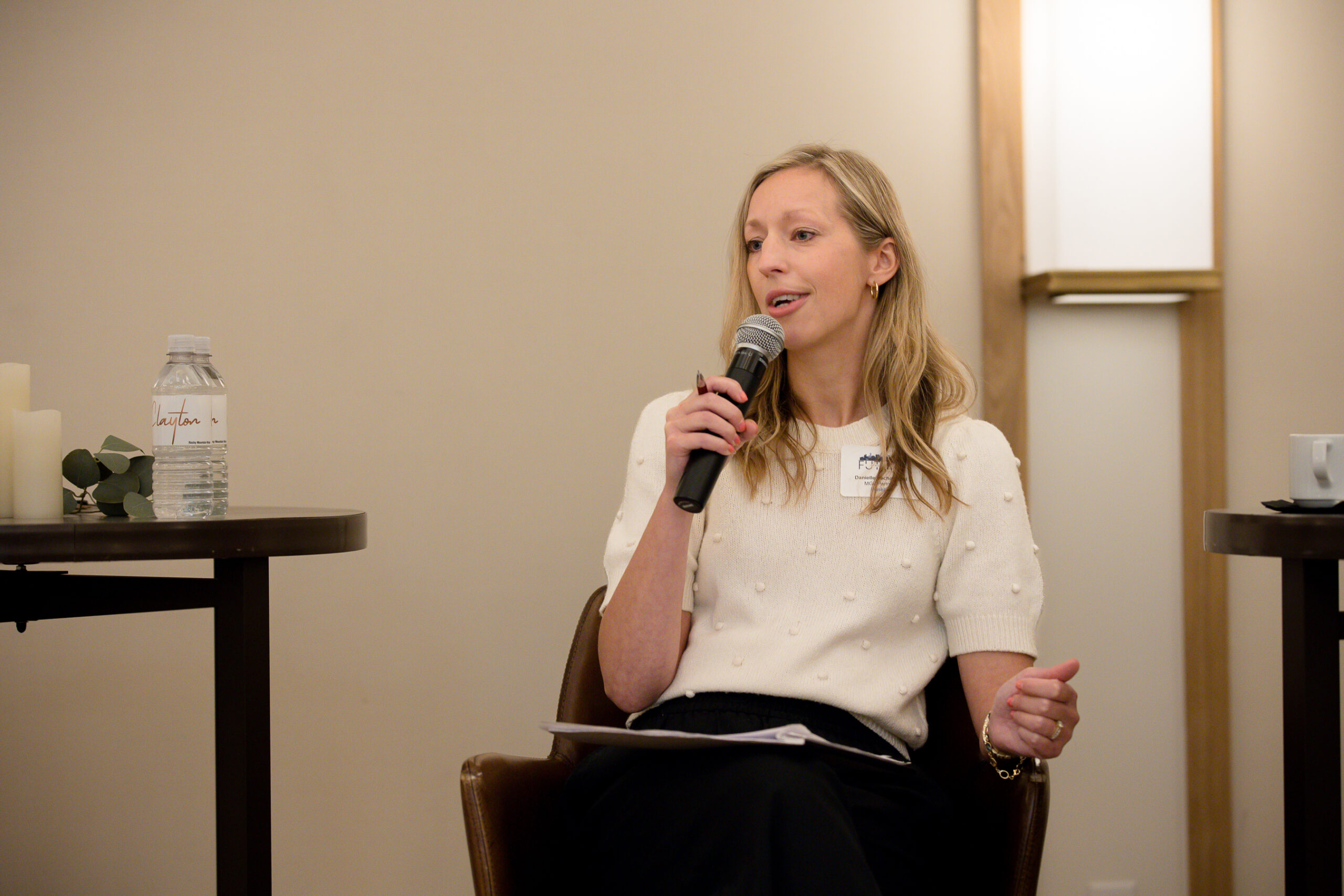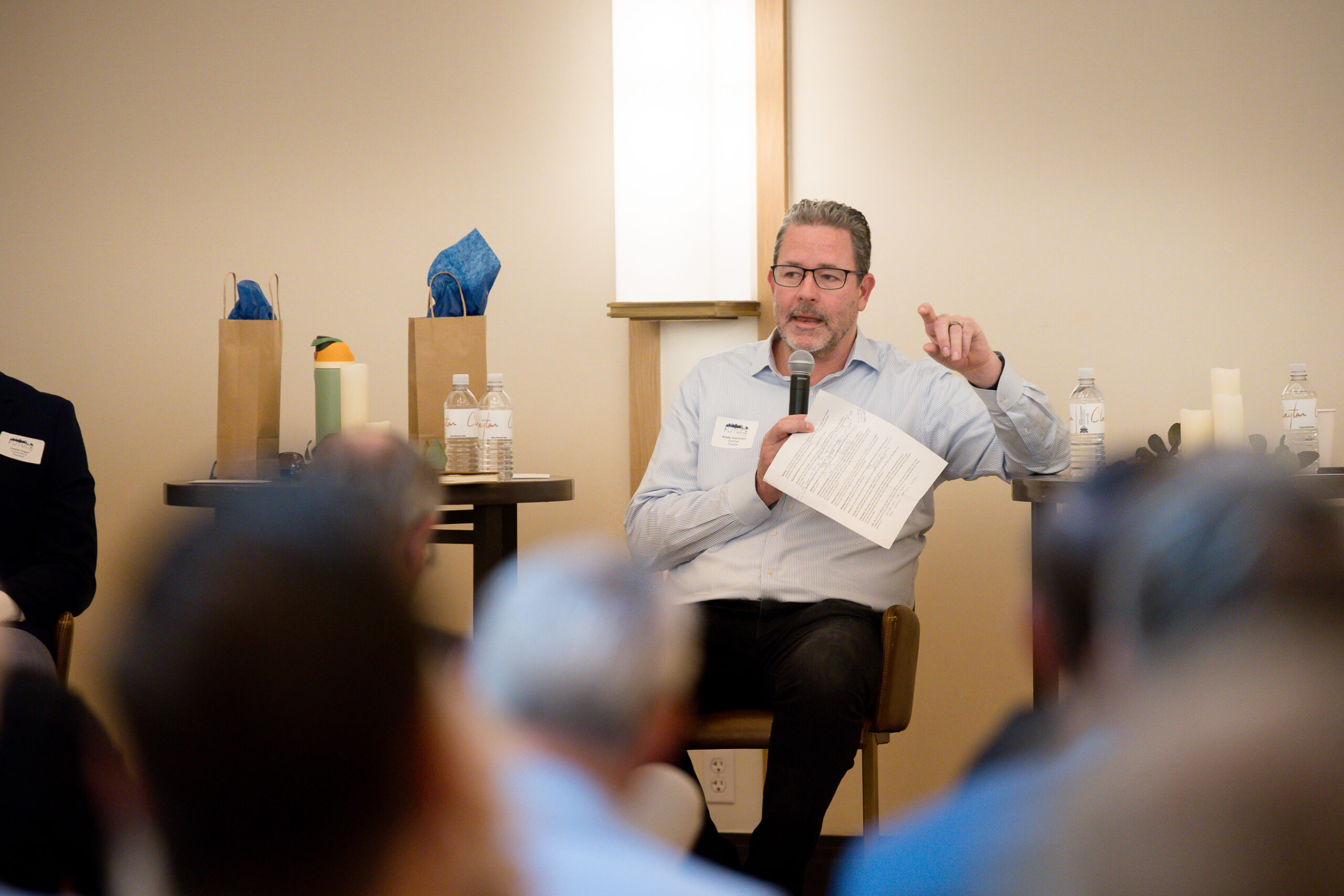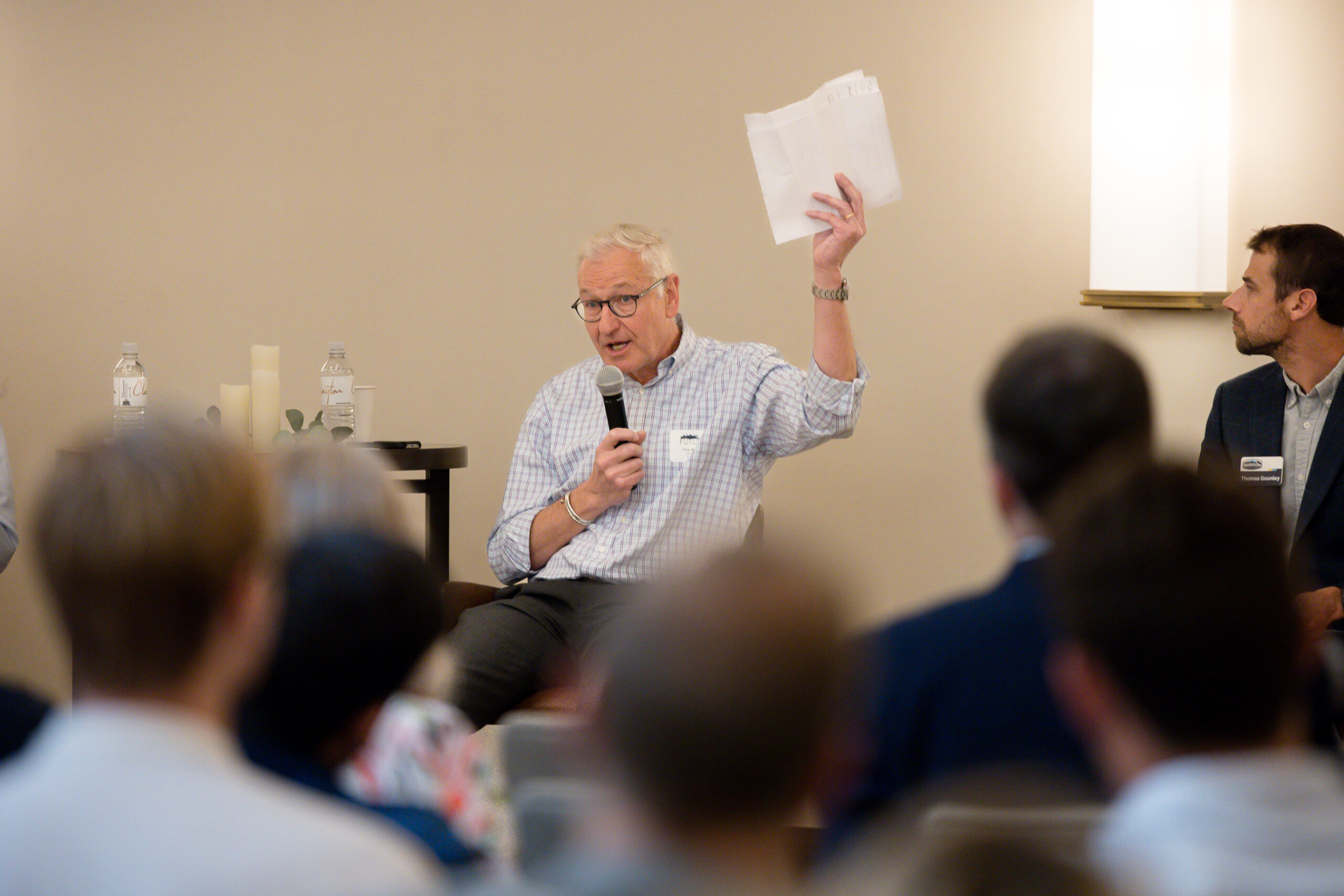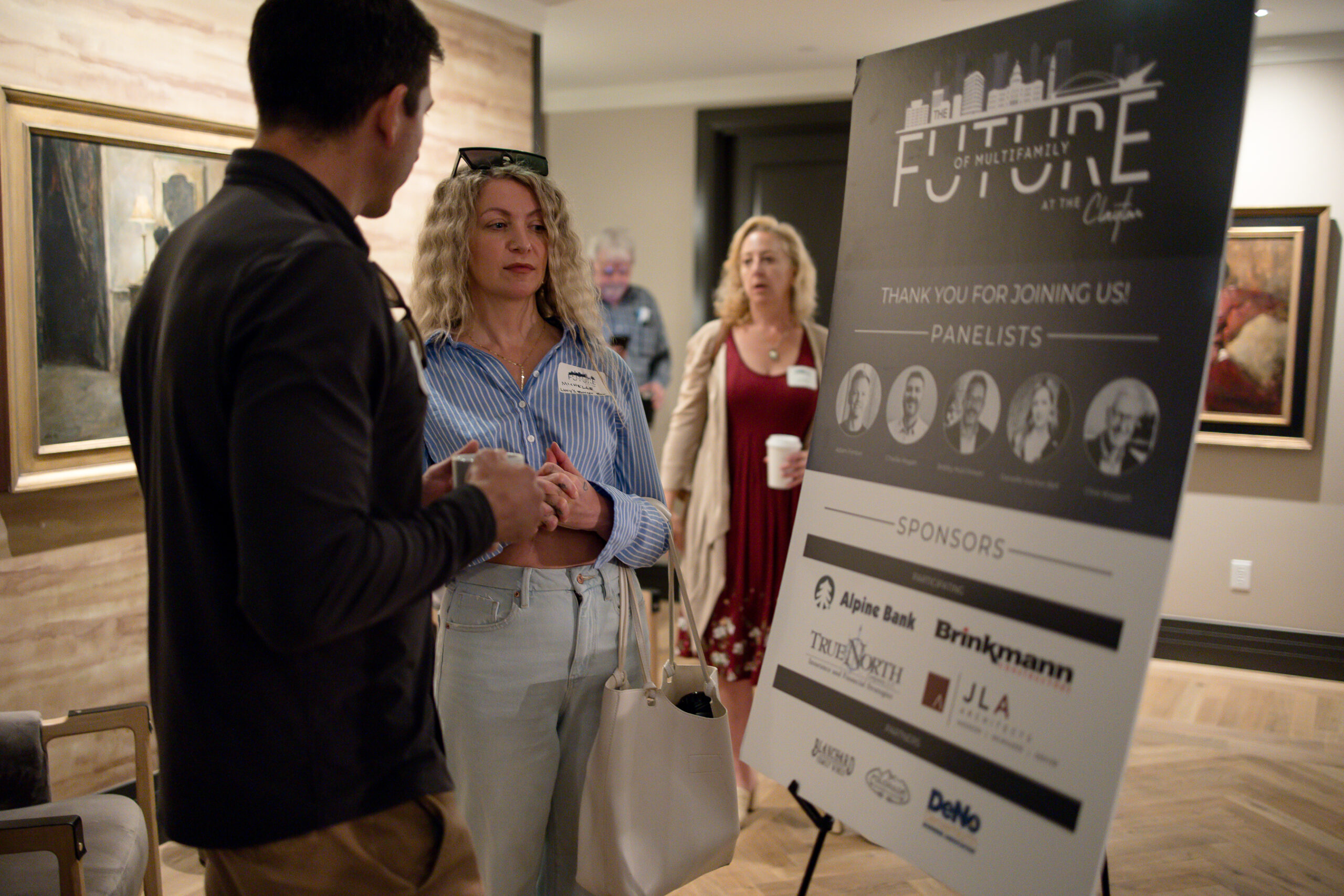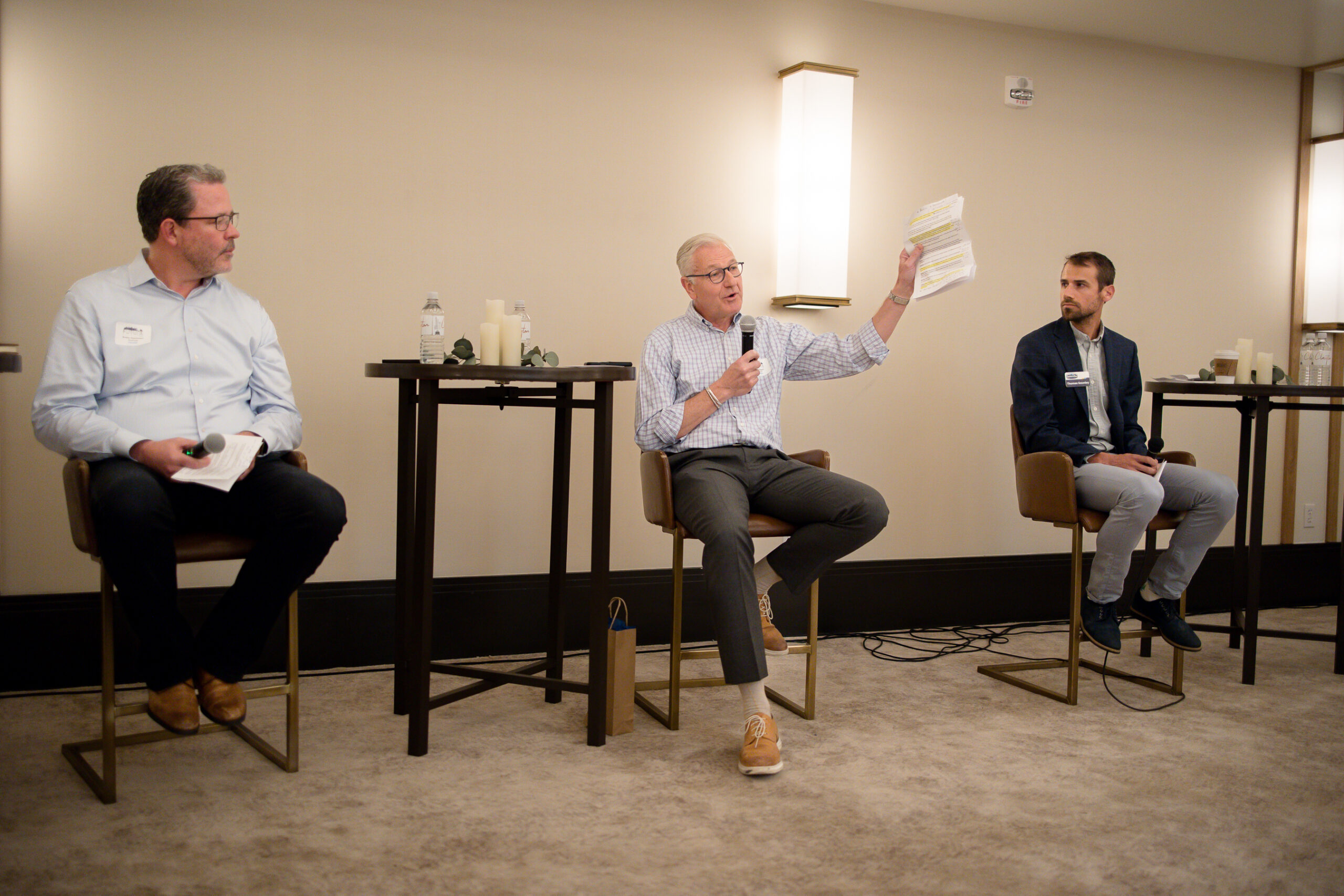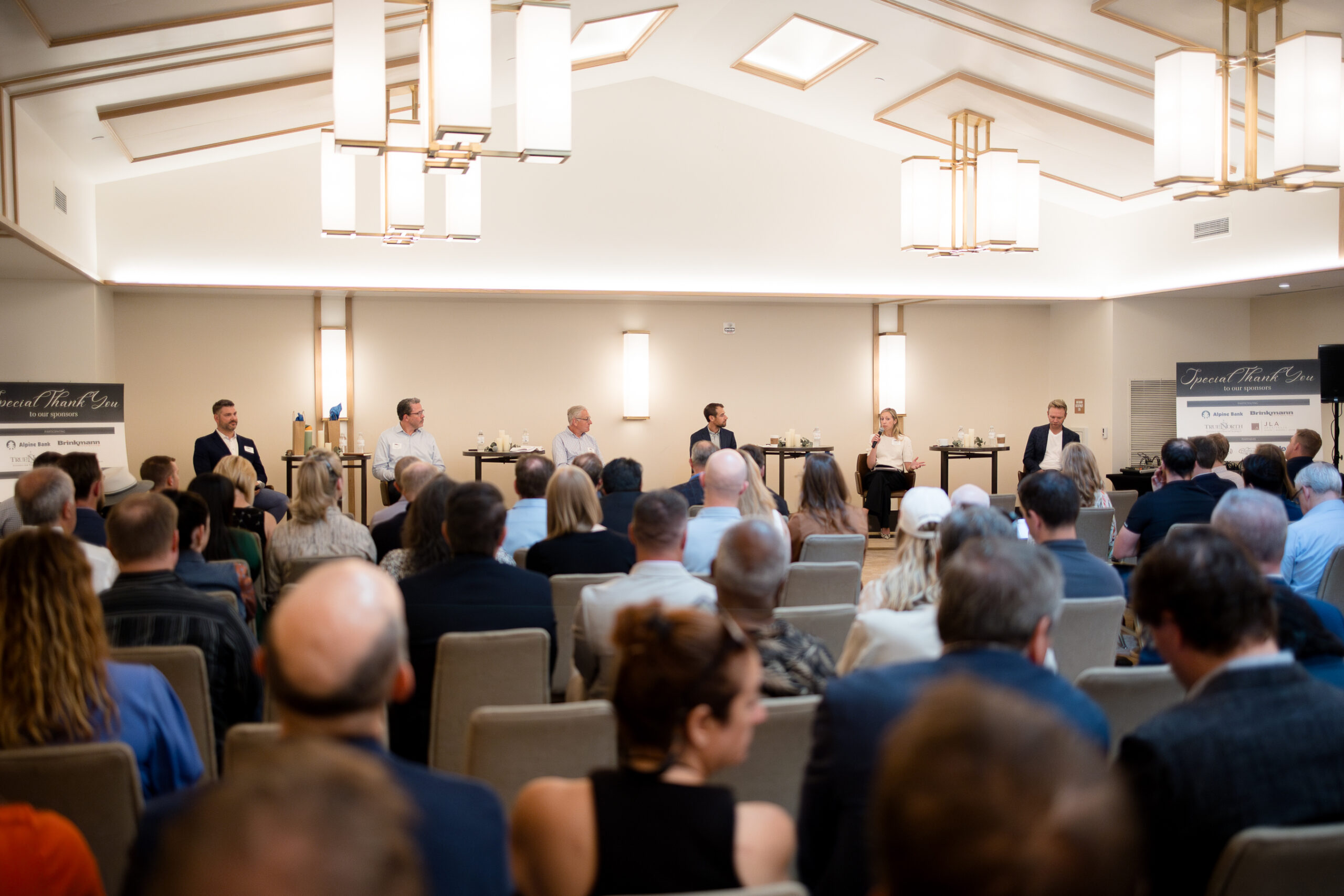Fewer apartment buildings are breaking ground in Denver these days, as developers deal with higher interest rates and construction costs, and what can seem like endless rounds of city reviews on their proposals.
Owners of existing older buildings, meanwhile, are dealing with increased city and state regulations, including Energize Denver requirements that could bring significant costs.
Those were a few takeaways from BusinessDen’s “The Future of Multifamily” event last week, which brought more than 150 readers to the Clayton Hotel & Members Club in Cherry Creek.
Adam Fenton, founder of Denver-based Narrate Cos., which develops apartment buildings, said his most recent proposal in Denver had eight rounds of the city giving comments and Narrate attempting to address them. It should’ve been “three, maybe four,” he said.
“There’s no coordination,” Fenton said. “You’re going to get comments back. One agency says one thing, a separate agency says the complete opposite. They’re never on the same page.”
Denver’s Community Planning and Development department recently got a new leader, and Fenton said the process “seems to have gotten a little bit better” in the last six months.
But “It’s been a frustrating process to the point where it’s kind of pushed us out of Denver,” he said. Narrate also does projects in Colorado Springs.
“You know, we’ll look at a site here and a site there (in Denver) that’s really special,” Fenton said. “But beyond that, we can’t we just we’re not we’re not made to carry my hand for that long.”
Leaving Denver isn’t an option for D4 Urban, which owns about 75 acres at the southwest corner of Broadway and Alameda Avenue in the Baker neighborhood. The site is home to big-box retailers, including Sam’s Club and Safeway, but D4 has been working for more than a decade to gradually fill Broadway Park in with housing.
Earlier this year, D4 Urban CEO Chris Waggett said, San Diego-based developer Fairfield terminated its contract to buy a site within Broadway Park. The firm had been under contract since 2021 — and a lot changed during that time, he said.
“The capital markets moved, affordable housing ordinance — none of the contractual basis that they signed up to existed when they would have otherwise closed … To me, we have a crisis in how we are actually entitling things,” he said.
Waggett said that D4 is negotiating to re-position and re-lease the buildings Fairfield had been under contract to buy, and that a different developer, AMLI, is now under contract for another pair of sites within Broadway Park.
Projects that do get built can still face surprises — such as increasing insurance bills, said Danielle Vachon Bell, development director for Denver-based MGL Partners.
“We just got revised quotes and they’re up 35 percent from last year,” she said.
Vachon Bell specializes in the development of income-restricted housing. Getting a project in that realm built increasingly involves an array of funding sources.
“I closed three deals last year … the one with the least amount of sources was 12 sources of funding,” she said.
Denver-based RedPeak owns about 3,300 units in and around the Mile High City. The firm hasn’t made any acquisitions for a couple years, after a long stretch of being a regular buyer. President Bobby Hutchinson said the firm is expecting “pretty flat rent growth for the next couple years,” so it’s focusing on keeping occupancy high and turnover low.
But Hutchinson said a drop off in delivery of new units appears to be coming by 2026, and the homeownership rate is also expected to dip.
In a couple years, “There’s going to be a pretty strong environment for rent growth,” Hutchinson said.
Charlie Hogan, CEO of Cornerstone Apartment Services — which manages about 6,100 units in the core of Denver — said new construction is more challenging, but the pre-1970s assets that comprise the bulk of the firm’s portfolio “have actually fared relatively well.”
“This year we’ve had 4.8 percent rent growth in those pre-existing assets,” he said.
He noted that this comes despite the fact many of Cornerstone’s buildings are located a short distance from downtown, where office demand remains sluggish.
“I think what’s exciting for us — it’s kind of weird to say — but the fact that downtown Denver is 30 percent vacant and we’re still 96 percent occupied,” Hogan said.
Correction: This story has been updated to correct what is happening with the site for which Fairfield was previously under contract.

Fewer apartment buildings are breaking ground in Denver these days, as developers deal with higher interest rates and construction costs, and what can seem like endless rounds of city reviews on their proposals.
Owners of existing older buildings, meanwhile, are dealing with increased city and state regulations, including Energize Denver requirements that could bring significant costs.
Those were a few takeaways from BusinessDen’s “The Future of Multifamily” event last week, which brought more than 150 readers to the Clayton Hotel & Members Club in Cherry Creek.
Adam Fenton, founder of Denver-based Narrate Cos., which develops apartment buildings, said his most recent proposal in Denver had eight rounds of the city giving comments and Narrate attempting to address them. It should’ve been “three, maybe four,” he said.
“There’s no coordination,” Fenton said. “You’re going to get comments back. One agency says one thing, a separate agency says the complete opposite. They’re never on the same page.”
Denver’s Community Planning and Development department recently got a new leader, and Fenton said the process “seems to have gotten a little bit better” in the last six months.
But “It’s been a frustrating process to the point where it’s kind of pushed us out of Denver,” he said. Narrate also does projects in Colorado Springs.
“You know, we’ll look at a site here and a site there (in Denver) that’s really special,” Fenton said. “But beyond that, we can’t we just we’re not we’re not made to carry my hand for that long.”
Leaving Denver isn’t an option for D4 Urban, which owns about 75 acres at the southwest corner of Broadway and Alameda Avenue in the Baker neighborhood. The site is home to big-box retailers, including Sam’s Club and Safeway, but D4 has been working for more than a decade to gradually fill Broadway Park in with housing.
Earlier this year, D4 Urban CEO Chris Waggett said, San Diego-based developer Fairfield terminated its contract to buy a site within Broadway Park. The firm had been under contract since 2021 — and a lot changed during that time, he said.
“The capital markets moved, affordable housing ordinance — none of the contractual basis that they signed up to existed when they would have otherwise closed … To me, we have a crisis in how we are actually entitling things,” he said.
Waggett said that D4 is negotiating to re-position and re-lease the buildings Fairfield had been under contract to buy, and that a different developer, AMLI, is now under contract for another pair of sites within Broadway Park.
Projects that do get built can still face surprises — such as increasing insurance bills, said Danielle Vachon Bell, development director for Denver-based MGL Partners.
“We just got revised quotes and they’re up 35 percent from last year,” she said.
Vachon Bell specializes in the development of income-restricted housing. Getting a project in that realm built increasingly involves an array of funding sources.
“I closed three deals last year … the one with the least amount of sources was 12 sources of funding,” she said.
Denver-based RedPeak owns about 3,300 units in and around the Mile High City. The firm hasn’t made any acquisitions for a couple years, after a long stretch of being a regular buyer. President Bobby Hutchinson said the firm is expecting “pretty flat rent growth for the next couple years,” so it’s focusing on keeping occupancy high and turnover low.
But Hutchinson said a drop off in delivery of new units appears to be coming by 2026, and the homeownership rate is also expected to dip.
In a couple years, “There’s going to be a pretty strong environment for rent growth,” Hutchinson said.
Charlie Hogan, CEO of Cornerstone Apartment Services — which manages about 6,100 units in the core of Denver — said new construction is more challenging, but the pre-1970s assets that comprise the bulk of the firm’s portfolio “have actually fared relatively well.”
“This year we’ve had 4.8 percent rent growth in those pre-existing assets,” he said.
He noted that this comes despite the fact many of Cornerstone’s buildings are located a short distance from downtown, where office demand remains sluggish.
“I think what’s exciting for us — it’s kind of weird to say — but the fact that downtown Denver is 30 percent vacant and we’re still 96 percent occupied,” Hogan said.
Correction: This story has been updated to correct what is happening with the site for which Fairfield was previously under contract.




